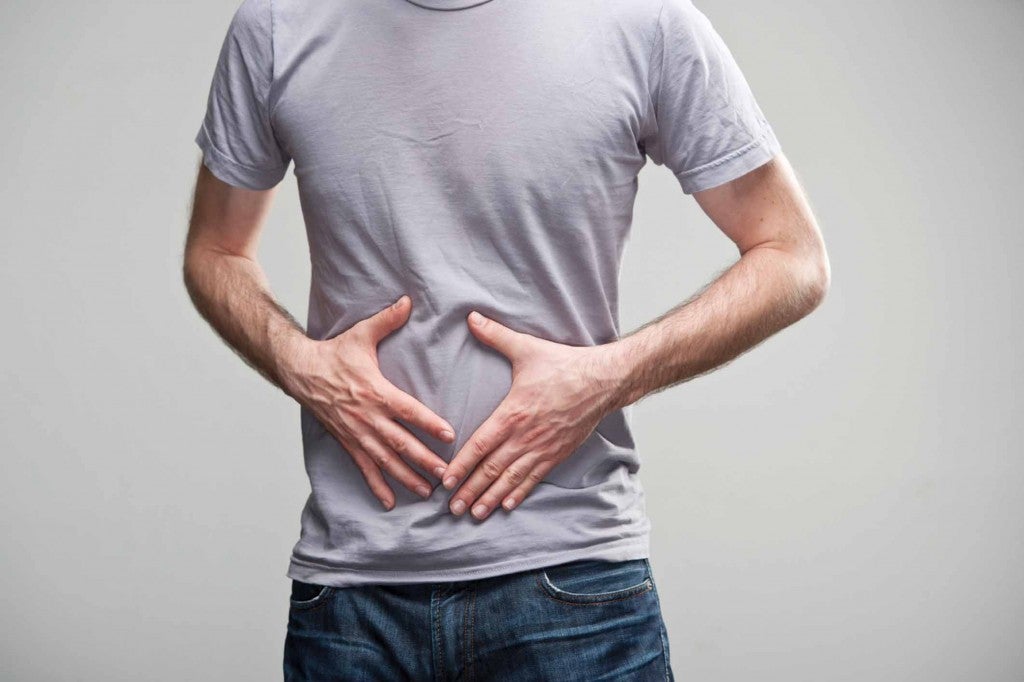Treating And Preventing Painful Hernias

Photo: iStock
A strong core is the best prevention for a painful hernia.
The Symptoms
Pain in the lower abdomen (a general hernia) or groin (a sportsman’s hernia) that worsens with coughing or sneezing. Sometimes pain that appears to be muscular persists for months and turns out to be from a hernia.
What’s Going On In There?
A hernia is a tear or weakness in the abdominal wall that allows the intestines or another organ to get pinched in the gap or push outside the abdomen, usually (but not always) causing pain. A general hernia is usually located in the lower abdomen at hip level. The most common kind of hernia, the inguinal hernia, involves the inguinal canal, which runs through the front wall of the abdomen and channels blood and lymph vessels, nerves, the spermatic cord in men, and the round ligament in women from inside the body to closer to the surface. Sections of the intestine or other abdominal organs can poke through at various places along the abdominal wall at the front of the canal, as well as around the inguinal rings at the entrance and exit of the canal.
A sportsman’s, or sports hernia, which is named that because it’s more common in athletes, occurs lower, near the groin. It’s unlike a general hernia because it rarely involves protruding organs. It’s a tearing of abdominal muscle, tendon and/or fascia where it attaches to the pubic bone in the lower pelvis. Your adductors attach here as well, and if they are stronger than the abdominal muscles—as they often are if you under-train your core—they can pull down on the pubic bone, causing the tear. A sports hernia is often mistaken for a chronic groin strain.
As for a general hernia, it’s possible to confuse a hernia with an abdominal strain. If you have pain, try this test: Bear down as if you’re having a bowel movement and feel the area where it hurts. Sometimes you can feel a subtle, soft protrusion where the intestine has poked through the abdominal wall. Another signal? Abs strains get better. Hernias don’t—unless you have surgery.
RELATED: 7 Steps To An Injury-Free Season
Fix It
Let the pros handle it. Hernias need surgical repair. If you ignore it, you could face serious complications.
Prevent It
Up your core work. A strong core is the best prevention for a hernia. In fact, there’s no better reason to stay in shape—they’re most often caused by weak abs and being overweight. Planks, crunches and leg raises should be workout staples. Also, I recommend taking a Pilates class a couple times a week.
When To Call A Doctor
As soon as you suspect a hernia. This is also why doctors check for hernias during physicals. If you ignore it, you could have complications:
Strangulation. The tissue that protruded outside the abdominal wall is pinched where it emerges and loses its blood supply. The tissue dies. Then it can turn gangrenous.
Testicular damage. The spermatic cord runs through the inguinal canal, so inguinal hernias can affect the testicles. Some inguinal hernias cause scrotal swelling.
Bowel dysfunction and/or obstruction. If enough of the bowel herniates, you could have intestinal cramping and vomiting. If the bowel is completely obstructed by the pinching, your bowel movements and flatulence will stop.
RELATED: The Injury-Prevention Diet
Do You Need Surgery?
Yes. Both general and sports hernias require surgery. They are not complicated procedures and athletes usually have a full recovery.
More Med Tent from Dr. Jordan Metzl.
New York City sports medicine specialist Jordan D. Metzl, M.D. is a 29-time marathon finisher and 10-time Ironman. His book, The Athlete’s Book of Home Remedies, has more than 1,000 tips to fix all types of injuries and medical conditions.